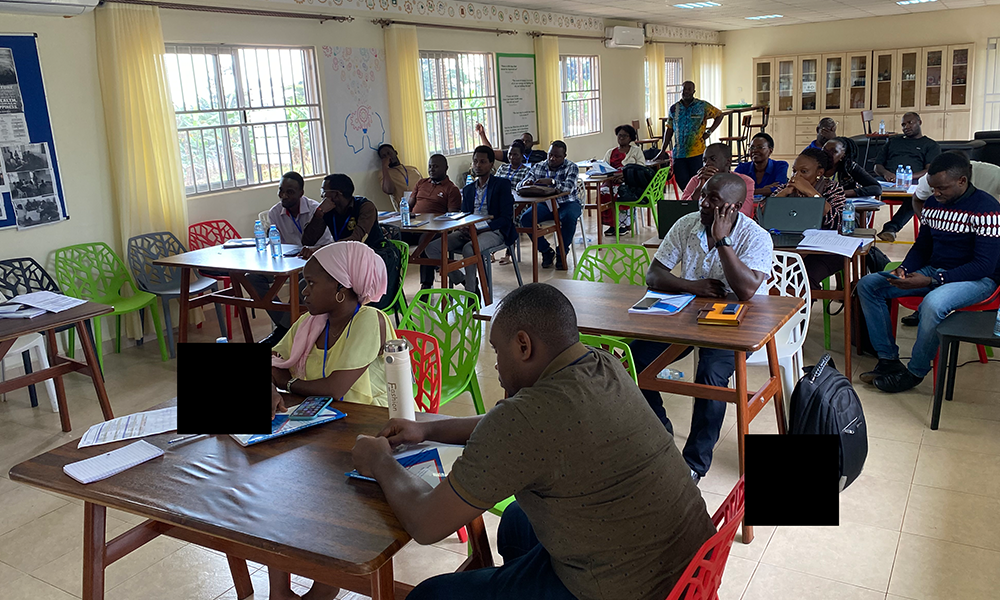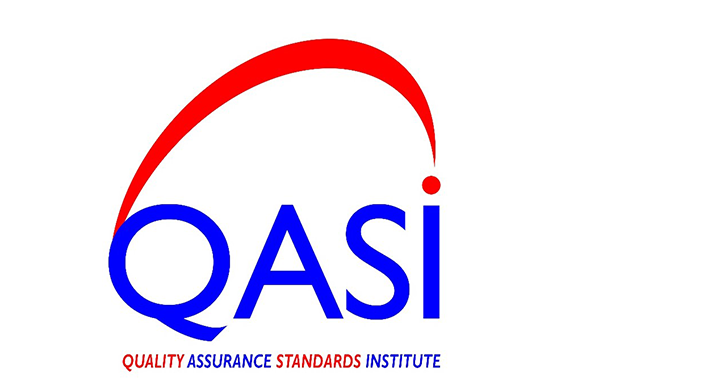ISO15189 -Medical Laboratory Management System

The ISO 15189 Medical Laboratories course offers a deep dive into the quality and competency standards for medical labs. This training equips learners with the skills to implement and maintain a quality management system that meets international standards. Participants will cover topics like staff qualifications, equipment calibration, process control, and risk management.
ISO 15189:2022, which is based on ISO/IEC 17025 and ISO 9001:2015, provides competence and quality criteria specific to medical laboratories. This online ISO 15189 awareness training course will assist attendees in understanding the requirements for the quality and competence of medical labs, as well as the implementation of the quality management system in medical laboratories by ISO 15189:2022 standard.
ISO 15189:2022 – Medical Laboratories is an international standard that specifies the requirements for quality and competence in medical lab environments. Essentially, it is a standard that requires labs to develop a robust, reliable quality management system (QMS) to establish their competence.
ISO 15189 is so important for medical laboratories because it is a globally recognized accreditation that will allow you to ensure the reliability, competence, integrity, and overall quality of your lab’s practices. It is crucial to the perception of your entire organisation as trustworthy, credible, and competent to your customers or business partners.
- Compliance: Meet legal requirements for your industry.
- International recognition: Gain trust from global institutions.
- Tendering advantage: Meet a common requirement for many tenders.
- Global consistency: Produce data that aligns with international standards.
- Reputation boost: Improve your standing in the global community.
- Preferred supplier status: Increase your chances of being chosen by new or existing customers.
- Competitive advantage: Outperform competitors without ISO 15189.
- Reputation alignment: Match the reputation of competitors with ISO 15189.
- Cost savings: Implement efficient practices and avoid costly errors.
- Time savings: Automate repetitive tasks.
- Risk management: Proactively address potential risks in medical testing labs.
- Centralized documentation: Maintain a single source of truth for lab information.
- Data protection: Demonstrate commitment to data security.
- Continuous improvement: Use a PDCA model to drive positive results.
QASI is excited to support you, contact us to begin with the first step!
Explore our courses and find the perfect fit for your needs.
- ISO 15189 Implementers’ course
- ISO 15189 Auditors’ course based on ISO 19011
- ISO 15189 based Conformance Management and Risk Management course
- ISO 15189 based Risk Management course
- ISO 15189 based Management Review course
- ISO 15189 based Statistical Process Control Course
- Medical Laboratory Personnel / Managers/ Supervisors/QMS implementers
- Management Representatives,
- QMS Consultants,
Management Students
Training Days for each course: 5
Exam Duration: 1 hour
Retake Exam: Yes
For additional information, please contact info@qasi.co.ug
ISO 15189 Implementers’ course
ABOUT THIS COURSE
Course Description:
- The ISO 15189 Implementers’ course is designed to equip individuals with the knowledge and skills necessary to establish, implement, maintain, and continually improve a quality management system (QMS) in a medical laboratory that meets the specific requirements of the ISO 15189 standard.
- ISO 15189 is an international standard that specifies requirements for medical laboratories involved in the provision of patient-oriented laboratory services.
Course objectives:
- Establish and implement a QMS that meets the requirements of ISO 15189.
- Conduct internal audits of the QMS.
- Identify and address nonconformities.
Certification
On successful completion of the course “Certificate of Successful Completion” will be issued to participants.
Resource Material
- ISO/IEC 115189:2022 international standard.
- Hand-outs and course material will be supplied to all participants
- Training Package- Power point Presentations
Who Should Attend:
- Laboratory managers
- Quality managers
- Scientists
- Technicians
- Regulatory affairs professionals
Course Prerequisites
- Quality management principles: A general understanding of quality management concepts, such as customer focus, process approach, continuous improvement, and evidence-based decision-making.
- Medical laboratory operations: Familiarity with the basic operations and processes of medical laboratories.
- Regulatory requirements: Knowledge of relevant regulatory requirements for medical laboratories in your jurisdiction.
ISO 15189 Auditors’ course based on ISO 19011
ABOUT THIS COURSE
Course Description:
- The ISO 15189 Auditors’ course, based on the ISO 19011 standard, is designed to equip individuals with the knowledge, skills, and techniques necessary to conduct effective audits of medical laboratories that conform to the ISO 15189 standard. ISO 15189 is an internationally recognized standard that specifies requirements for medical laboratories involved in the provision of patient-oriented laboratory services.
Key topics covered in the course include:
- ISO 15189 requirements: A comprehensive understanding of the key principles, clauses, and requirements of the ISO 15189 standard for medical laboratories.
- ISO 19011 auditing principles: The fundamental principles and techniques for conducting effective audits, as outlined in the ISO 19011 standard.
- Audit planning and preparation: Techniques for planning and preparing for audits of medical laboratories, including developing an audit plan, selecting audit team members, and gathering necessary documentation.
- Audit techniques: Effective auditing techniques for assessing the quality of medical laboratory services, including patient safety, technical competence, and quality management systems.
- Evidence collection and evaluation: Methods for collecting and evaluating audit evidence, including objective evidence and records.
- Nonconformity management: Identifying, documenting, and addressing nonconformities found during audits of medical laboratories.
- Audit reporting: Preparing clear and concise audit reports that effectively communicate audit findings.
Continuous improvement: The role of audits in driving continuous improvement within medical laboratories.
Course objectives:
- Conduct effective audits of medical laboratories that conform to ISO 15189.
- Identify nonconformities and recommend corrective actions.
- Evaluate the effectiveness of medical laboratory quality management systems.
- Contribute to the continuous improvement of medical laboratory services.
Certification
- Participants get certificate of successful course completion awarded at the end of the training.
- Minimum requirements for certification will include: 100% attendance of the sessions and at least 70% in the post-test.
- Participants who fail to meet the criteria above get a certificate of participation.
Resource Material
- ISO 15189
- ISO 19011
- ISO 15189 checklists
- Hand-outs and course materials
Who Should Attend:
- Internal auditors
- External auditors
- Laboratory managers
- Quality managers
- Scientists
- Regulatory affairs professionals
Course Prerequisites
- ISO 15189: A general knowledge of the key principles, clauses, and requirements of the ISO 15189 standard for medical laboratories.
- ISO 19011: Familiarity with the principles and techniques for conducting audits, as outlined in the ISO 19011 standard.
- Quality management systems: A basic understanding of quality management systems and their principles.
- Auditing concepts: Knowledge of auditing principles, such as evidence collection, objective evaluation, and reporting.
ISO 15189 based Corrective Action, Action to address risks and opportunities (CA/A-RO) based on ISO 22367 course
ABOUT THIS COURSE
Course Description:
- Corrective Action, Action to address risks and opportunities (CA/A-RO) course is a fundamental management tool that should be used in every quality system. The CA/A-RO course facilitates the continuous improvement effort of Laboratory Quality Management Systems by providing skills of identifying nonconformities or risks that can affect patient safety, consume resources, and adversely impact the ability to provide quality services.
- Having an effective CA/A-RO system closes the loop between identifying a nonconformity and completing the actions to eliminate the nonconformity.
Course objectives:
- Provide skills in identifying nonconformities, root cause analysis and conducting corrective and preventive action
- Understand when & why the CA/A-RO Process is implemented.
- Understand role & responsibilities surrounding the CA/A-RO Process.
- Provide knowledge in risk management, continual improvement and the implementation of improvement projects
Certification
On successful completion of the course a “Certificate of Successful Completion” will be awarded.
Resource Material
- ISO 15189:2022 international standard.
- ISO 22367- ISO for Risk Management
- Hand-outs and course material will be supplied to all participants.
Who Should Attend:
- Heads of sections
- Laboratory Manager
- Quality Mangers
- Medical Technologist or Clinical Scientist
Participants include:
All persons implementing clinical quality systems
Course Prerequisites
- Potential participants must have relevant education experience in implementation of QMS.
- They must have had training on Basic QMS or Good veterinary Laboratory Practice or implementation of relevant ISO standard.
ISO 15189 based Management Review course
ABOUT THIS COURSE
Course Description:
Management Review is a formal evaluation by top management of the status and adequacy of the quality system in relation to the quality policy and objectives. MR provides the cornerstone for the laboratory’s strategic planning.
Management Review Training is a critical component of QMS in medical laboratory services. The content within the management review should effectively address resources, risks, and opportunities, nonconformance and all aspects of the management system functionality
Course objectives:
- Strengthen the method and structure of routine Management Reviews to ensure continuing compliance with the requirements of the ISO 15189.
- Provide detailed understanding on what metrics are monitored and why it is important to the quality system.
- Develop capacity to conduct effective management review in line with the requirements of ISO 15189 Clause 8.9.
Certification
- Participants get certificate of successful course completion awarded at the end of the training.
- Minimum requirements for certification will include: 95% attendance of the sessions and at least 70% in the post-test. Participants who fail to meet the criteria above get a certificate of participation.
Resource Material
- ISO 15189
- ILAC G20:2002
- Hand-outs and course materials
Who Should Attend:
Laboratory top management
- Laboratory Chiefs
- Section Heads, Laboratory Managers
- Quality Managers
- Technologist /technical manager.
Course Prerequisites
- Participants should be Knowledge of Management systems and ISO 15189 standard
- Should be a member of top management and or involved in strategic planning of the institution
ISO 15189 based Statistical Process Control Course
ABOUT THIS COURSE
Course Description:
- The selection, verification, and validation of methods is crucial for the technical validity of results issued to a customer. This 10-day training focused on: Validation, verification, and measurement uncertainty will equip participants with knowledge and skills to design experiments and/or computations for determining relevant performance characteristics of a measurement method. Two tracks will be designed for medical laboratories, respectively.
- This course covers all the basic studies, from replication, linearity (reportable range), and comparison of methods, to the more advanced studies required for more complex methods, including interference, recovery, detection limit, and transference of reference intervals.
- In-depth discussion about the elements and performance criteria of how to appropriately verify an analytical method with respect to method type will be provided to the participants. At the end of the course, participants shall be able to apply the relevant statistical tools for the analysis and interpretation of validation & verification data. Elements of quality indicator(s) usage to monitor laboratory performance and change management will be inclusive.
Course objectives:
- Provide practical knowledge and skills to design experiments and/or computations for determining relevant performance characteristics of a measurement method/equipment for purposes of validation of new methods/modified ones.
- Provide practical knowledge and skills to design experiments and/or computations for determining relevant performance characteristics of a measurement method/equipment for purposes of verification before introduction in use.
- Provide practical knowledge and skills in general calibration principles and metrological traceability
Certification
- Participants get certificate of successful course completion awarded at the end of the training.
- Minimum requirements for certification will include: 95% attendance of the sessions and at least 70% in the post-test. Participants who fail to meet the criteria above get a certificate of participation.
Resource Material
- ISO 15189
- CLSI Auto 8
- CLSI EP15-A3
- CLSI EP06-A
- CLSI EP09-A3
- CLSI EP17-A2
- CLSI EP21-Ed2
- CLSI C24-Ed4
- Statistical tables and charts
Who Should Attend:
Participants include:
- Heads of sections
- Quality managers
- Technical staff
Course Prerequisites
- Knowledge on implementation of QMS based on ISO 17025
- Those who are managing or performing laboratory analysis and for those responsible for maintaining quality.
Who should attend?
- Medical Laboratory Personnel / Managers/ Supervisors/QMS implementers
- Management Representatives,
- QMS Consultants,
- Management Students.
Other Information
Training Days for each course: 5
Exam Duration: 1 hour
Retake Exam: Yes
For additional information, please contact info@qasi.co.ug







